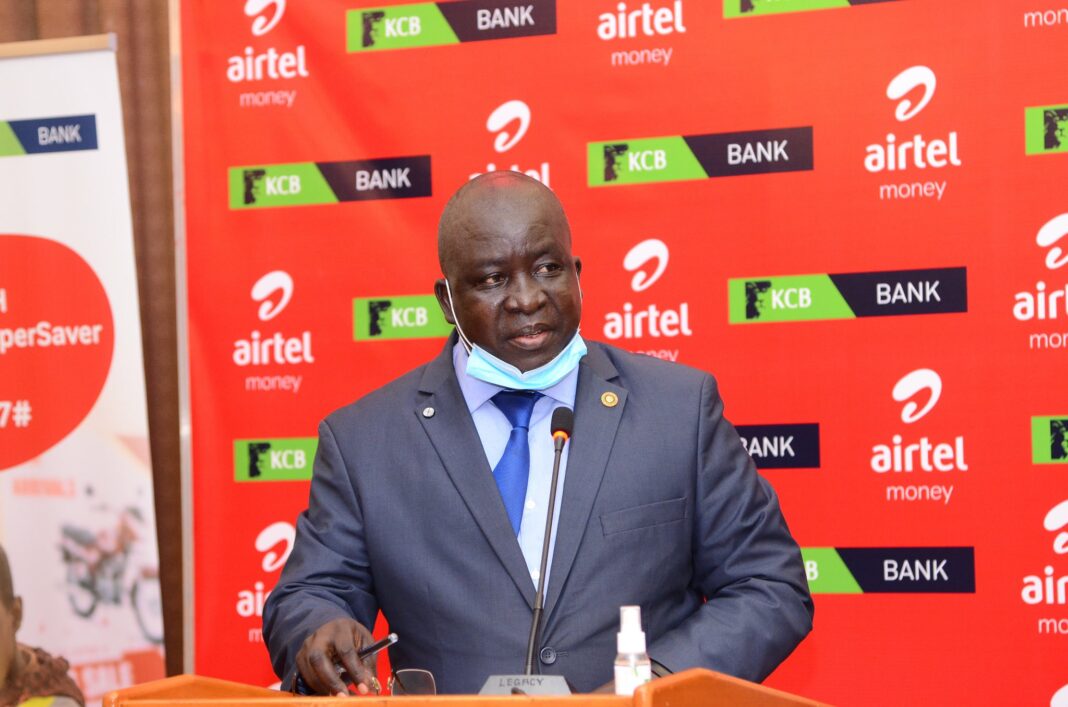It’s been thirteen years since the Ugandan payments landscape was disrupted by the First mobile money system.
In 2009, MTN Uganda introduced the first mobile money transaction service and today, the sector has grown to more than 170 private players consisting of mobile network operators, commercial banks, non-bank financial institutions, third-party operators, Fintech innovators, and technology providers operating within the Fintech market.
At entry of the service in the market, main services offered were transfer of funds from one person to another. However, services have since evolved to include remote purchase of airtime, payments of utilities, school fees payments, taxes, insurance premiums, international remittances, savings and loans among other things. For years, the main concern for Bank of Uganda has been ensuring safety of customer’s funds transacted over mobile money platforms.
Mackay Aomu, Director National Payments Systems Department at Bank of Uganda says the time is ripe for some order in the sector hence the introduction of the National Payments Systems Act to regulate players and protect consumers from fraud activities.
Aomu likens the Act to a “plumbing system” for money in the economy that ensures effective transmission of monetary policies. The National Payment Systems Act provides regulations and guidelines that help to maintain the integrity of the sector.
Key take-outs of the Act
Power of the Central Bank
The Act provides for the Central Bank’s power to, among other things, oversee the operations of qualified systems and thereby ensure the safety of participants’ funds and the efficiency of payment systems.
Licensing
The central bank has the power to grant licenses to applicants if they have satisfied the requirements necessary. It will enact licensing regulations providing eligibility and procedure of application, under the Licensing Regulations and the Electronic Money Regulations. So far Aomu says five licenses have been given to MTN, Airtel, Mcash, Micro pay and Interswitch. Other operators await their licenses too.
Consumer Protection
The Act requires protection of the privacy of participants and non-disclosure of their information unless such disclosure is in accordance with the law, an order of court or consent of the participant or customer as per Section 59 of the Act. This requirement is in tandem with the recently passed Data Protection Act, 2019.
The Regulatory Sandbox Framework
The National Payment Systems Act provides a regulatory sandbox framework. The purpose of the sandbox is to govern the manner in which a person or institution can obtain a limited access level to a payments system’s ecosystem for purposes of testing.
Aomu says this framework means that FinTechs have room to test their product on the market to ascertain its viability. “Here, FinTechs are allowed to come into the market to test a product. If a fintech company is not successful in the first six months they can ask for an extension. When they succeed they can get a license,” he explained
Aomu believes that the National Payment Systems Act will not only benefit FinTechs but the entire ecosystem, BOU inclusive. He says success has already been registered by the agent banking model, a well-regulated service now facilitating 85 percent of transactions deposited. To him, mobile money services are enabling inclusion of the informal sector, an indication that their funds are available for intermediation.
The Executive Director of the Uganda Bankers Association, Wilbrod Owor says the Act is a welcome move because it brings order, oversight, rules, data security systems, operating systems, network systems and corporate governance.
“We are dealing with a lot of money going to a lot of people. The financial sector thrives on the integrity of its systems and therefore it’s important to mitigate any risk,” Owor said.
He added “FinTechs are huge and necessary partners in the current digital climate therefore as more enter the space, more frameworks are needed. FinTechs, like banks, have embraced the Act despite murmurs in some corridors. Although some think the Act will create barriers of entry but all=so stifle growth given its financial implications.”
Xente’s Founder and Chief Executive Officer, Allan Rwakatungu is currently undergoing one of the licencing processes required under the Act for one of his products.
“Of course, it means more paperwork, a lot of it, and it takes time,” he says as he welcomes the move too. The FinTech has spent five months trying to meet regulations for one of its products.”
Regardless of this, Rwakatungu believes that this is a small price to pay for something as progressive as the Act. He says that at an early stage, startups may not see the necessity but once the company grows and gets big clients like government agencies and corporations, there will be a need for trust and assurance that money is safe and this is where regulatory frameworks become crucial.
Hellen Mukasa, the Legal Lab Lead at The Innovation Village appeals to FinTech startups to read the Act and ensure that they are compliant so as to benefit from it.
“Regulation of the startups in this sector is welcome because it means that the terms of engagement for all players involved are clear. There are benefits to adhering to the law and obvious heavy costs to operating outside regulatory frameworks especially in the financial sector which comes with risk.”
Mukasa said, “Overall, there is relief among the ecosystem players, with the enactment of the Act. Many startup founders feel that this advancement means that Uganda has embraced the digital economy. This kind of operating environment is expected to open up space for more innovations in the FinTech sector while enforcing safety through the regulations.






